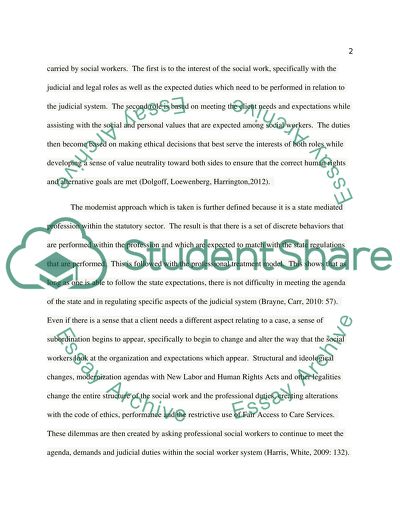Cite this document
(“Defining the Evolution of Duties Among Social Workers Essay”, n.d.)
Defining the Evolution of Duties Among Social Workers Essay. Retrieved from https://studentshare.org/law/1443679-2-identify-and-analyse-the-duties-held-by-a-social-worker-as-a-professional-a-statutory-agent-and-an-employee-of-a-local-autho
Defining the Evolution of Duties Among Social Workers Essay. Retrieved from https://studentshare.org/law/1443679-2-identify-and-analyse-the-duties-held-by-a-social-worker-as-a-professional-a-statutory-agent-and-an-employee-of-a-local-autho
(Defining the Evolution of Duties Among Social Workers Essay)
Defining the Evolution of Duties Among Social Workers Essay. https://studentshare.org/law/1443679-2-identify-and-analyse-the-duties-held-by-a-social-worker-as-a-professional-a-statutory-agent-and-an-employee-of-a-local-autho.
Defining the Evolution of Duties Among Social Workers Essay. https://studentshare.org/law/1443679-2-identify-and-analyse-the-duties-held-by-a-social-worker-as-a-professional-a-statutory-agent-and-an-employee-of-a-local-autho.
“Defining the Evolution of Duties Among Social Workers Essay”, n.d. https://studentshare.org/law/1443679-2-identify-and-analyse-the-duties-held-by-a-social-worker-as-a-professional-a-statutory-agent-and-an-employee-of-a-local-autho.


